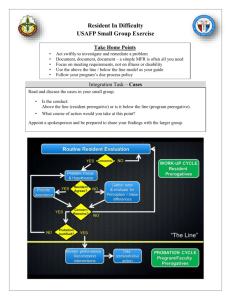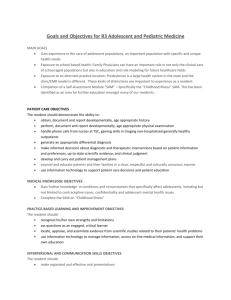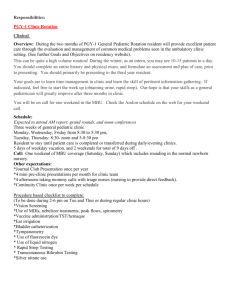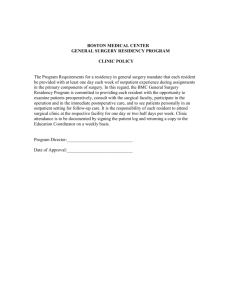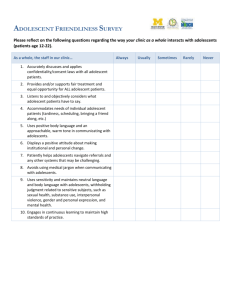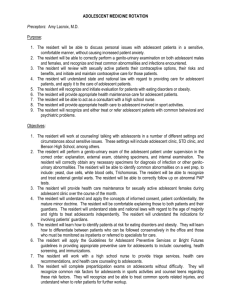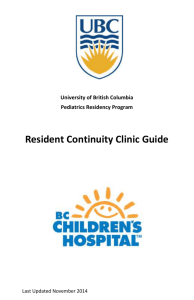ADOLESCENT
advertisement
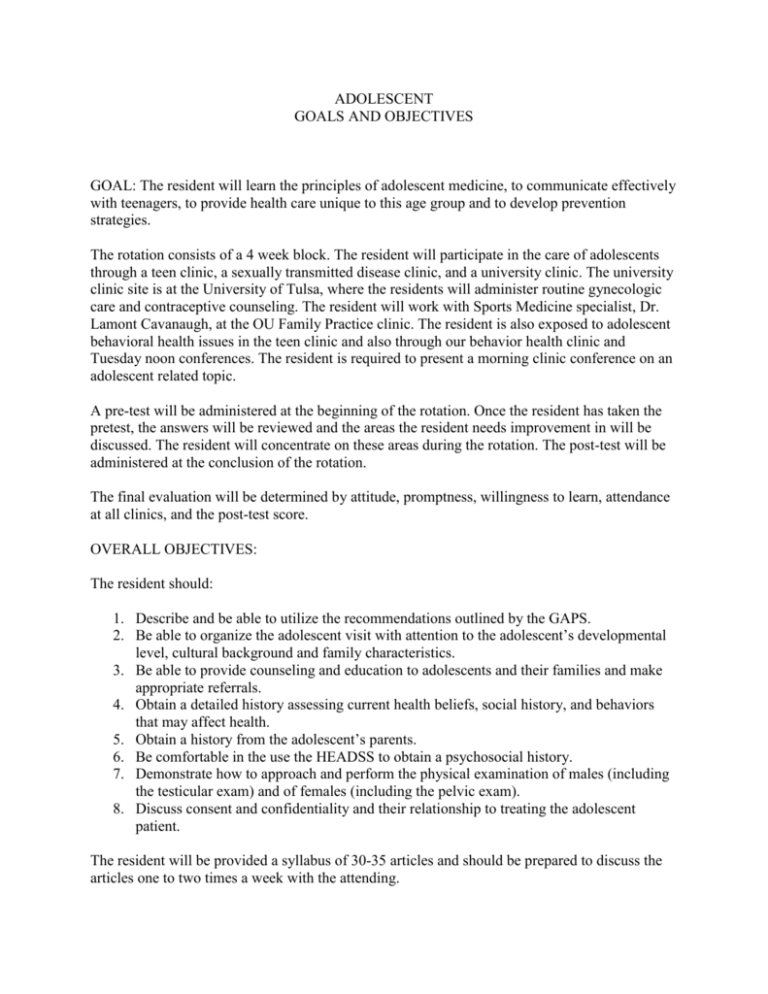
ADOLESCENT GOALS AND OBJECTIVES GOAL: The resident will learn the principles of adolescent medicine, to communicate effectively with teenagers, to provide health care unique to this age group and to develop prevention strategies. The rotation consists of a 4 week block. The resident will participate in the care of adolescents through a teen clinic, a sexually transmitted disease clinic, and a university clinic. The university clinic site is at the University of Tulsa, where the residents will administer routine gynecologic care and contraceptive counseling. The resident will work with Sports Medicine specialist, Dr. Lamont Cavanaugh, at the OU Family Practice clinic. The resident is also exposed to adolescent behavioral health issues in the teen clinic and also through our behavior health clinic and Tuesday noon conferences. The resident is required to present a morning clinic conference on an adolescent related topic. A pre-test will be administered at the beginning of the rotation. Once the resident has taken the pretest, the answers will be reviewed and the areas the resident needs improvement in will be discussed. The resident will concentrate on these areas during the rotation. The post-test will be administered at the conclusion of the rotation. The final evaluation will be determined by attitude, promptness, willingness to learn, attendance at all clinics, and the post-test score. OVERALL OBJECTIVES: The resident should: 1. Describe and be able to utilize the recommendations outlined by the GAPS. 2. Be able to organize the adolescent visit with attention to the adolescent’s developmental level, cultural background and family characteristics. 3. Be able to provide counseling and education to adolescents and their families and make appropriate referrals. 4. Obtain a detailed history assessing current health beliefs, social history, and behaviors that may affect health. 5. Obtain a history from the adolescent’s parents. 6. Be comfortable in the use the HEADSS to obtain a psychosocial history. 7. Demonstrate how to approach and perform the physical examination of males (including the testicular exam) and of females (including the pelvic exam). 8. Discuss consent and confidentiality and their relationship to treating the adolescent patient. The resident will be provided a syllabus of 30-35 articles and should be prepared to discuss the articles one to two times a week with the attending. Enclosed: Syllabus Schedule for the month List of phone numbers and addresses Dr. Gwen Gibson may be reached at her Schusterman office (918) 660-3400 or (918) 660-3413, the pediatric clinic (918) 838-4850, or by pager (918) 628-9473.
